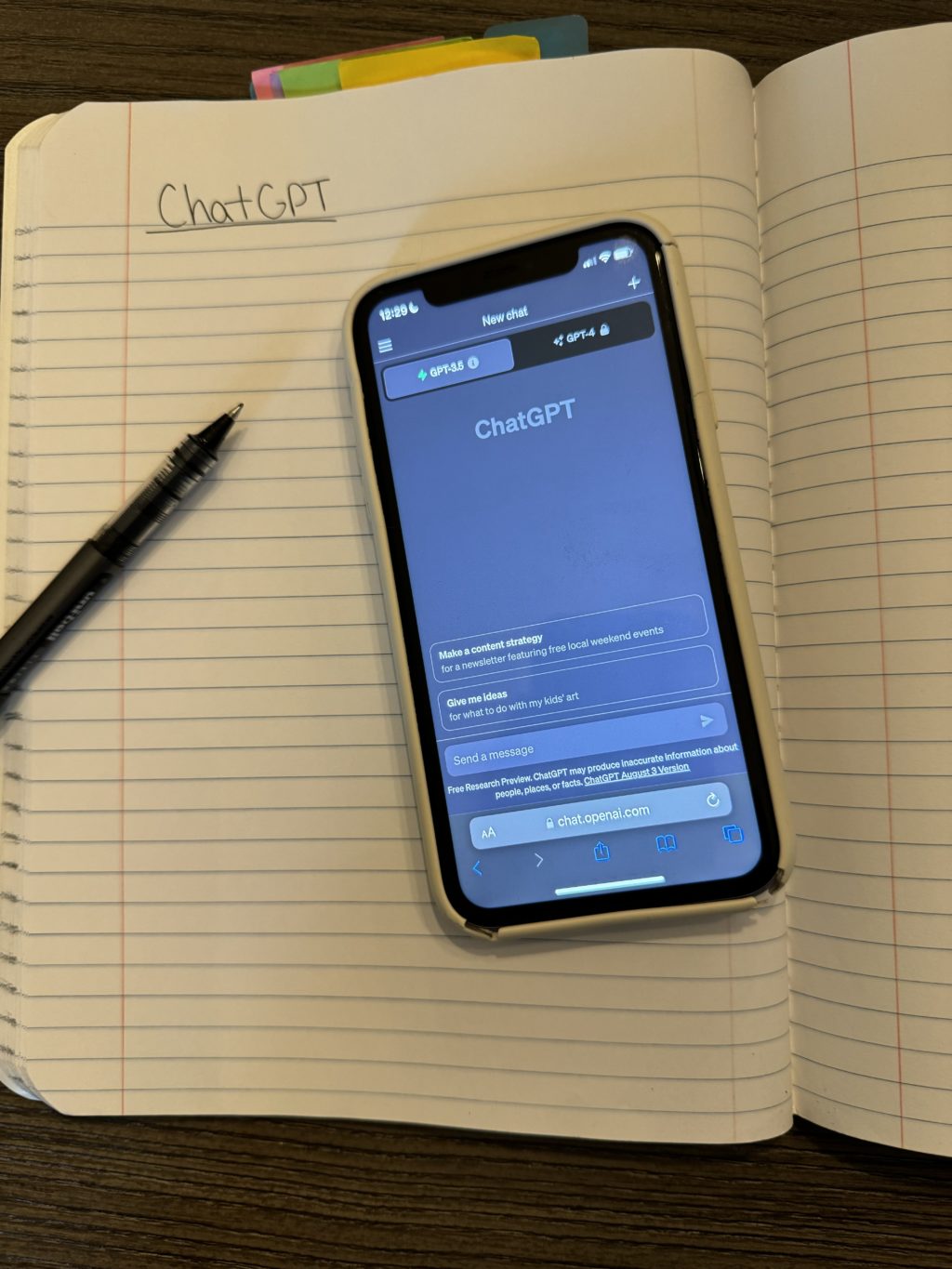PVHS has made significant updates to its student handbook for the new school year, addressing a growing concern: the use of artificial intelligence as a tool for plagiarism.
Since its launch in November 2022, ChatGPT has changed the landscape of education in PVHS. The free app that generates a convincing approximation of text written by humans is infiltrating many corners of society. Having the ability to write essays, answer math questions, and more, students have quickly become familiar with this new technology. With the start of the school year well underway, PVHS has had to prepare for a new year with artificial intelligence in mind.
The PVHS student handbook’s definition of plagiarism, “The act of using the words, written or spoken, or the ideas of someone else in your original work, without proper citation(s),” has taken on new dimensions. Recognizing ChatGPT’s popularity and integration into students’ academic lives, PVHS has amended its policies, firmly asserting, “You are plagiarizing if you use Artificial Intelligence (AI) generated text without citing your source (i.e. ChatGPT).” The recognition of AI-generated content as a potential source of plagiarism has been met with broad consensus among educators.
“It is my understanding that if you have not generated the content that you claim to produce, this constitutes plagiarism…This is not to say that AI does not have a place in our current schooling, but it must be used as a support for student learning as opposed to a replacement for student learning,” Mr. Lyczak, a 12th-grade English teacher, said.
ChatGPT’s influence extends beyond student policies; it has left its mark on teacher perspectives as well.
“If ChatGPT is able to help you understand the material better then I’d be so happy. Maybe I should ask students, ‘Hey, how can this help you understand the material better’ and if they are able to learn what it means through a different format, I wouldn’t look at that as cheating,” Dr. Gelman, a psychology teacher at PVHS, said.
While some educators support the responsible use of artificial intelligence tools, they emphasize the importance of clear communication and proper citation.
“I encourage my students to use AI appropriately and to communicate with me about where and how it’s been used, citing as necessary. It is a tool and, as such, is only as effective as the individual utilizing it,” Lyczak said.
While some teachers encourage their students to use this new technology, they recognize that it is just a tool and should be used as such. Some teachers within the school continue to navigate the uncharted waters of AI integration, ensuring that students harness the full potential of this technological advancement while upholding academic integrity.
